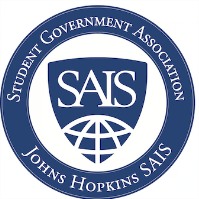WASHINGTON, D.C.— A symposium evaluating the work of the Aquino Administration, as well as the opportunities and challenges for the Philippines will be held at the Johns Hopkins School for Advanced International Studies SAIS Rome Auditorium on Thursday, April, 28, from 10.00 a.m. to 1.30 p.m.
Entitled, “Philippines 2016: Governance, Growth, Development, and Security,” is co-sponsored by the Philippine Embassy and the U.S.-Philippines Society, together with the Johns Hopkins School for Advanced International Studies (SAIS).
As President Benigno S. Aquino III concludes his six-year term, leading Philippine and U.S. analysts and officials will offer their comments and recommendations on governance, growth, development and security, and the prospects for Philippines-U.S. relations.
The first panel on governance, growth and development will feature Motoo Konishi, former country director for the Philippines, The World Bank; Dr. Gloria D. Steele, senior deputy assistant administrator for Asia, U.S. Agency for International Development; and Matthew L. Bohn, vice president of administration and finance and chief financial officer Millennium Challenge Corporation.
The second panel on peace and security, including the issues relating to the South China Sea and Southern Philippines, will have the following as panelists: Zachary Abuza, professor, National War College; Dr. Patricio Abinales, University of Hawaii at Manoa; and Ruth Wedgwood, Burling Professor of International Law, Johns Hopkins SAIS.
A luncheon keynote address will be given by the Richard Lugar, former chairman of the Senate Committee on Foreign Relations, who played a critical role in supporting Philippine democracy and development, and strengthening modern US-Philippine relations.
Lugar will provide a personal perspective on the Philippines, including its 30-year transition since the EDSA Revolution of 1986, recent progress under the Aquino Administration, along with what he perceives lies ahead for the U.S.-Philippines relationship.
“This symposium should not only deepen American and Filipino American understanding of where the country is at today, but perhaps also set the scene for the presidential transition in June and the challenges and opportunities in the post-Aquino years,” Philippine Ambassador to the United States Jose L. Cuisia, Jr. said in a statement.



